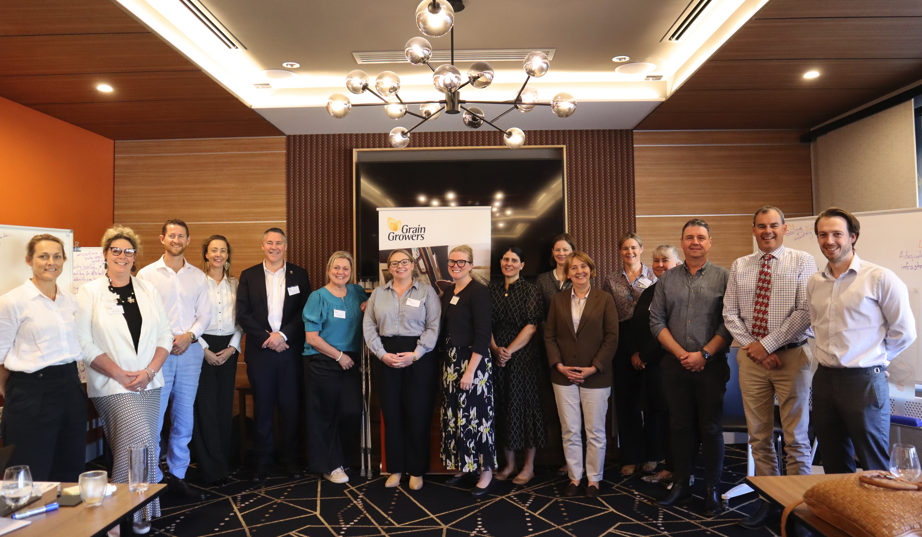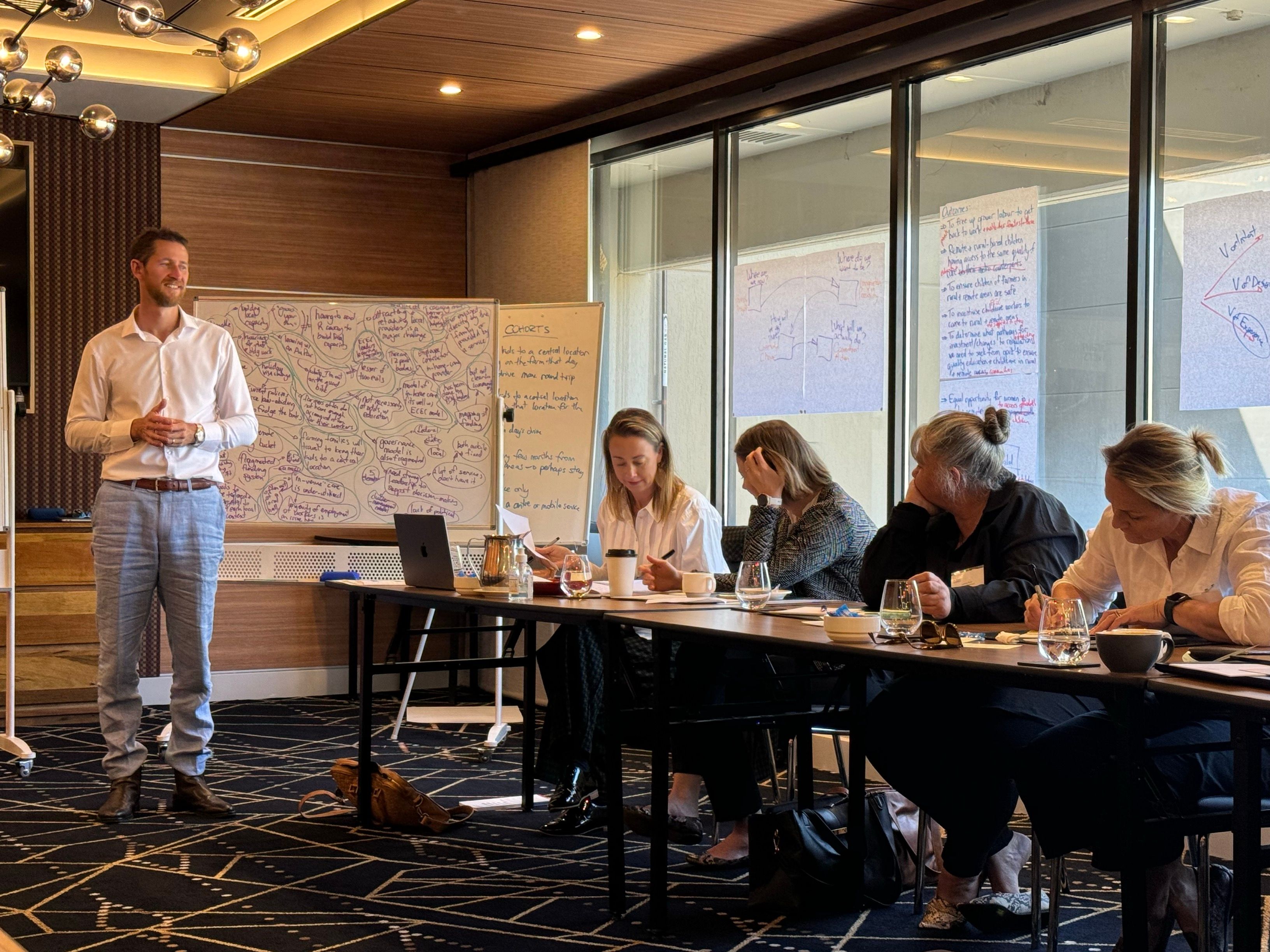In rural and remote areas of Australia, access to early childhood education and care (ECEC) services have long been a concern, impacting the lives and livelihoods of children and families in these regions.
GrainGrowers’ recent strategy session in Canberra aimed to identify practical and workable solutions to address this issue. The session built upon the foundation laid by a previous GrainGrowers Roundtable, which identified key barriers to accessing ECEC in rural and remote areas.
GrainGrowers’ CareConnect project is an ongoing initiative aimed at addressing the pressing challenges of ECEC in rural and remote regions of Australia.

The Depth of the Problem
Workforce issues such as labour shortages have been flagged by growers year on year and continue to be a top priority for GrainGrowers. Farming communities rely on attracting and retaining young, motivated people and families to work on farm, and growers with young families will know of the challenges of balancing a farm business while raising children. Affordability and accessibility of ECEC in rural and remote Australia plays a huge role in keeping family businesses running and attracting new staff to the sector.
While growers across Australia are facing worker shortages, it’s essential to look at the underutilised talent pool of parents who are eager to return to work but are unable to access adequate care for their children, as well as ways to keep families on farm and operating sustainable, profitable farm businesses.
A Collaborative Approach
GrainGrowers CEO Shona Gawel said the event drew together key people to develop a strategy to improve childcare services in terms of both care and educational capacity.
“Leading up to this discussion we interviewed a comprehensive list of highly qualified individuals, including growers, academics, ECEC operators and ECEC advocacy organisations, to get their thoughts on the factors that impact services.”
“The process reinforced the depth of the problems to bridge gaps in rural and remote childhood education and care.”

GrainGrowers is very pleased with the discussions undertaken at the CareConnect event, and is now looking at ways to implement some of the ideas raised.
“Going into the discussions, we wanted to bring together a forum for experts, stakeholders and impacted parties to collaborate and drive meaningful change. I think we have taken that step forward.”
“We now have agreement in the room to develop a range of initiatives to address the most pressing challenges of education and care in rural and remote regions of Australia.”
Key Initiatives
GrainGrowers is now looking at recommendations from the discussion to explore initiatives that look to improve ECEC access and affordability for growers.
Some of the initiatives explored during the session include:
Dedicated strategy development, including funding reform, focusing on support for rural and remote communities.
- Scoping for a GrainGrowers and Family Day Care Australia pilot program to test the feasibility of different approaches for better using existing on-farm and community assets and venues.
- Leadership and capacity building to assist with regulatory requirements across a range of delivery models.
Grower representatives
GrainGrowers would like to thank our National Policy Group (NPG) representatives who attended the strategy session, alongside GrainGrowers Chair Rhys Turton, to draw on firsthand experience and champion grower needs.
Denise McLellan, a Southern Region representative on GrainGrowers National Policy group, understands firsthand the importance of addressing this issue, particularly for women in the grains industry.
"Currently, many smart, talented, professional women in rural areas cannot contribute to the workforce because they can't access childcare," Denise said pointed out. The social fabric of rural communities often depends on family farms, making childcare accessibility a vital concern.
Western Region representative Tracy Lefroy wishes to see flexible solutions to ECEC accessibility, which may not look the same for each farming community.
“One of the key points from the discussion focused on how to ensure care in the regions is accessible.”
“Provision of services must be universal but not necessarily uniform. One suggestion highlights the potential for rural and remote funding to be distributed from the Federal level directly to local government authorities. Under this scenario those on the ground would be given authority to allocate funding based on their local context and needs.”
“The solution to current issues requires flexible, nimble, and responsive solutions. Where local challenges exist, we need to note that while the questions may be the same across rural Australia, the answers may be different in each unique location.”
Kate Gunn is a Northern Region NPG representative and agrees that while there is no fix-all solution to these issues, it’s important to recognise ECEC as a challenge worth approaching from new angles.
“Early childhood education is a vital but often overlooked ingredient in our industries and businesses.”
“Access to some form of early childhood education is important for us as farmers, as parents and most importantly is critical for all children in rural and remote communities.”
“This wonderful group of experts, advocates and industry have collectively agreed there is no one solution or silver bullet but have come up with some exciting and actionable ideas looking at new ways to address funding, infrastructure, advocacy and leadership and capacity building.”




